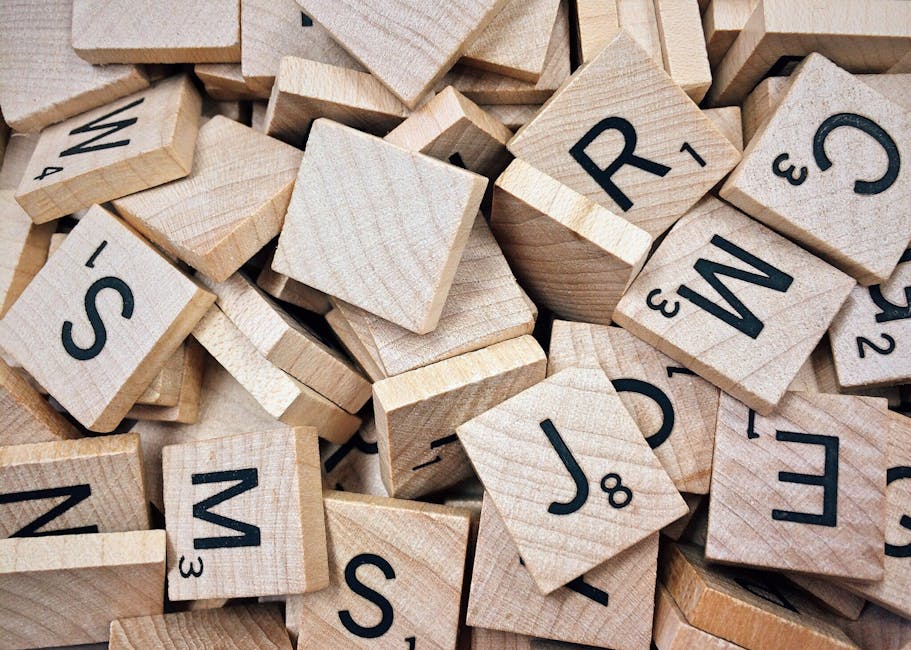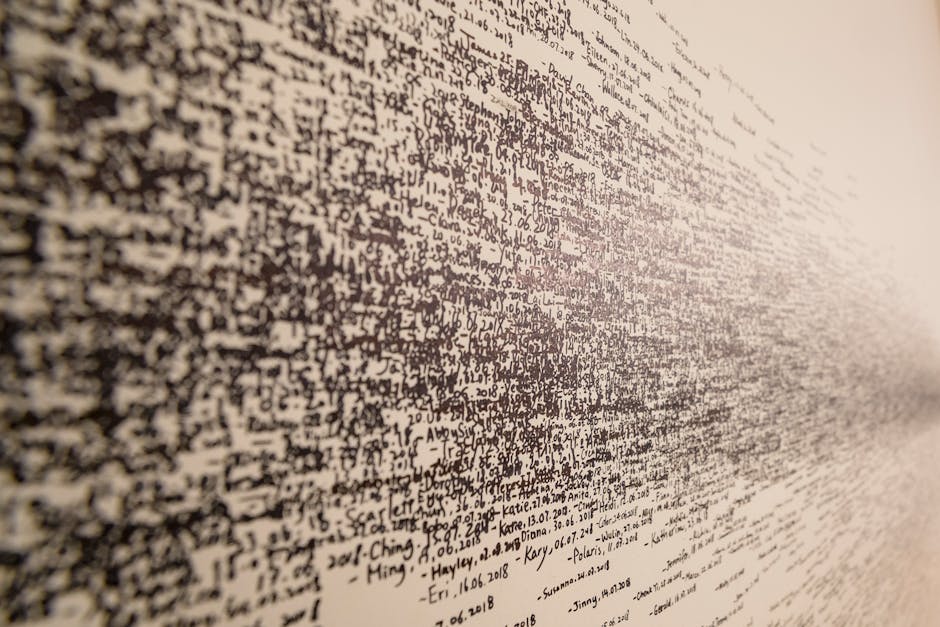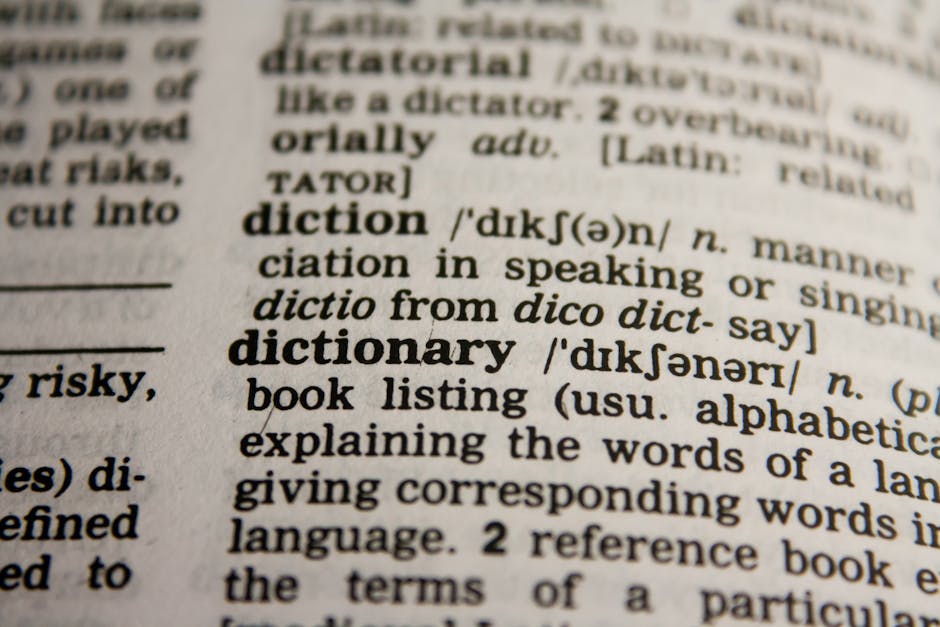Words in poems hold an enchanting power, weaving intricate tapestries of emotions and experiences. Each word is carefully chosen, meticulously crafted to evoke specific feelings and paint vivid pictures in the reader’s minds. The language of poetry is a symphony, where each note resonates with the human heart, offering solace, inspiration, and a sense of connection.
Poetry thrives on the beauty of language, the arrangement of words, and the rhythm of syllables. The words dance and sing, forming rhythmic patterns that capture the essence of human existence. These words are not merely strings of letters but memories, dreams, and reflections of the human soul.
Each poem is a universe of its own, filled with words carefully chosen to sing a specific tale. These words are like tiny treasures, holding untold stories and boundless possibilities.
Timeless – 37 Echoes of Eternal Words in Poems
Echoes of Memories
In whispers of the past, I hear
The echoes of memories so dear
A melody that never fades
A symphony that time has made
Lost and Found
In the depths of my soul, a voice whispers low
Of secrets kept and tales yet untold
A map to hidden treasures, yet to be known
A path that winds, where heart and soul are made to atone
Fading Light
As sunset’s embers fade to grey
The shadows dance, and night’s sweet sway
A lullaby of stars up high
A celestial show, before the dawn’s reply
Whispers in the Wind
On wings of breeze, a gentle sigh
A whispered secret, passing by
A mysterious touch, a subtle caress
A language only hearts can address
The Language of Silence
In the stillness, a thousand words unspoken
A symphony of hearts, that beat unbroken
A language that transcends the spoken word
A silence that speaks, and is forever heard
Beyond the Horizon
Where skies meet seas, and dreams unfold
A world beyond, where stories yet untold
A realm of magic, where hearts take flight
A journey’s end, where love shines bright
Moonlit Serenade
Under silver moon, where shadows play
A serenade of love, in a gentle way
A nocturne of whispers, soft and low
A lullaby of love, that only hearts can know
Ripples of Love
In the ocean’s depths, a pebble’s throw
A ripple effect, that love does make and grow
A wave of kindness, that reaches far and wide
A love that resonates, and will not subside
Stardust and Dreams
In the velvet night, where stars are born
A sprinkle of stardust, that hearts have sworn
A dreamcatcher’s web, that filters out the pain
A celestial canvas, where love’s stories remain
Enjoying these poems? You can also create your own poems with our Advanced AI Poem Generator.
The Whispering Winds
The whispers of the wind carry secrets old
Echoes of memories yet to unfold
Whispers of the past and the yet to come
A symphony of whispers, a gentle hum
In my ear, a gentle breeze caress
Reminding me of life’s gentle caress
The whispers of the wind, a soothing sound
Guiding me onwards, a sacred round
Midnight Reflections
In the stillness of the midnight hour
I stand alone, with thoughts galore
The world asleep, in silence deep
I ponder life, in a quiet keep
The stars above, a twinkling sea
Reflecting on me, with all its glee
Thoughts of love, of loss and of fame
Flicker and fade, like a candle’s flame
In the stillness of the midnight hour
I search for answers, in a world of power
A River’s Soliloquy
Oh, the tales I could tell of my flow
Of waters deep, where secrets grow
Where ripples murmur, and waves do roar
Of moments lost, and hours once more
A river’s journey, from source to sea
Where memories swim, wild and free
In my currents, where stories unfold
Echoes of echoes, of tales of old
A river’s soliloquy, in whispers told
Moonlit Whisper
The moon casts its gentle glow
A silent witness to the world below
Where shadows dance and secrets sleep
And whispers are born, the wind does keep
The mystic whispers, soft and low
A language known, yet yet unknown to know
The moon’s pure heart, a velvet fold
Where tales of old, forever unfold
Songs of the Sea
In rhythm with the waves, I sway
To melodies that drift away
Like sea sirens, calling me to sea
Where the horizon beckons, wild and free
The salty air, a soul’s perfume
Where every tale, is a mythical boom
I lose myself, in the vast blue space
Where the secrets of the deep, unfold its face
Lullaby of Memories
In twilight’s hush, where shadows play
The past whispers secrets of a fading day
A lullaby of memories so dear
Where tears of joy, and sorrow, disappear
The world outside, grows dark and still
As I surrender, to memories’ will
The moon’s soft glow, a gentle guide
Through the labyrinth, where memories reside**Echoes of the Ages**
In the halls of time, where silence is a song,
Echoes of the ages, humbling and strong.
Through the labyrinth of moments passed,
Echoes of the ages, shadows amassed.
Whispers of the ancients, lessons learned,
Echoes of the ages, wisdom discerned.
Through the shifting sands of memories sown,
Echoes of the ages, seeds are sewn.
Songs of forgotten dreams, like stardust bright,
Echoes of the ages, dreams alight.
Through the shattered prisms of a thousand tales,
Echoes of the ages, stories prevail.
Visions of the timeless, dreams yet new,
Echoes of the ages, we are due.
Through the ever-spinning threads of fate entwined,
Echoes of the ages, worlds aligned.
**Timeless Solitude**
Alone in the expanse of the cosmic sea,
Solitude eternal, waves caressing me.
Boundless the void, stars but specks of light,
Timeless solitude, terror and delight.
Adrift in silence beneath the sky of night,
Solitude eternal, a thousand sights.
In the abyss of darkness, stars so far away,
Timeless solitude, whispers of decay.
Serenade of solitude, no words exchanged,
Solitude eternal, emotions gauged.
In the symphony of emptiness, thoughts unfurled,
Timeless solitude, a precious pearl.
Amidst the chaos of the infinite, solace found,
Solitude eternal, sacred, hallowed ground.
In the heart of loneliness, the universe embraced,
Timeless solitude, lovingly traced.
**Eternal Circle**
Life and death, hand in hand they tread,
Eternal circle, life and death.
Spinning ’round the cosmic tree,
Eternal circle, doomed eternally.
Womb and tomb, in time’s embrace,
Eternal circle, love and grace.
Through the boundless cycle untold,
Eternal circle, the eternal fold.
Breath and bone, fire and ice,
Eternal circle, sweet sacrifice.
The great dance of unity and strife,
Eternal circle, the thread of life.
Ashes and dust, in the wind are sown,
Eternal circle, seeds once grown.
The turning tides of fate enmeshed,
Eternal circle, ever fresh.
**Ancient Sighs**
Upon the winds of unspoken years,
Ancient sighs, wistful fears.
With each breath, a thousand woes,
Ancient sighs, the soft ebb and flow.
In the depths of lost histories,
Ancient sighs, cryptic mysteries.
Through the veil of memory, frayed,
Ancient sighs, chronicles played.
Sweet and sour, the taste of truth,
Ancient sighs, eternal youth.
Forgotten names inscribed,
Ancient sighs, unrequited vices.
Tidal waves of sorrow and bliss,
Ancient sighs, a kiss on the mist.
The tales of ancient times gone by,
Ancient sighs, the bitter-sweet cry.
**Whispers of the Forgotten**
Faint and delicate; the dusk, they brush,
Whispers of the forgotten, voices hushed.
Lost in the mist, in the night, unbound,
Whispers of the forgotten, still found.
A symphony, silent; in the wind, they sigh,
Whispers of the forgotten, the final goodbye.
Dancing in the shadows of a bygone eve,
Whispers of the forgotten, a timeless reprieve.
Ephemeral wisps, haunting so near,
Whispers of the forgotten, for all to hear.
Echoes of the past, transcending age,
Whispers of the forgotten, a tribute to language.
Once reverberating in halls of old,
Whispers of the forgotten, to be told.
The tales that time could not erase,
Whispers of the forgotten, a hallowed grace.
**Songs of Impermanence**
Resounding chants in the echo’s embrace,
Songs of impermanence, shadows in space.
The dance of moments, by the hands of time thrust,
Songs of impermanence, an urgent trusted.
In the dance of atoms, stories unfurl,
Songs of impermanence, a pirouette pearl.
The ephemeral grace of fragility known,
Songs of impermanence, now grown.
A melody interwoven with the winds of fate,
Songs of impermanence, souls agitate.
Unfurling from the chrysalis of genesis,
Songs of impermanence, the future’s thesis.
With each breath, the end and the birth,
Songs of impermanence, an orb of mirth.
Adorned with the lustrous veil of change,
Songs of impermanence, life’s stage.
Most Popular Poems About the Power of Words
Do Not Go Gentle into That Good Night by Dylan Thomas
This poem is a passionate and urgent plea to the speaker’s father to resist the inevitability of death. The poem explores the theme of the power of words, as Thomas urges his father to “rage, rage against the dying of the light” and to use his words to defy mortality. The poem’s angry and defiant tone, combined with its innovative use of language and imagery, make it a powerful exploration of the human desire to leave a lasting legacy through words.
The Love Song of J. Alfred Prufrock by T.S. Eliot
This modernist masterpiece is a stream-of-consciousness exploration of the inner world of its protagonist, J. Alfred Prufrock. The poem is a meditation on the power of words to both reveal and conceal, as Prufrock struggles to express his thoughts and feelings to the world. Through its innovative use of language and form, the poem creates a sense of fragmented and disjointed thought, highlighting the difficulties of communicating meaning through words.
The Waste Land by T.S. Eliot
This modernist epic is a sweeping exploration of the disillusionment and fragmentation of modern life. The poem is a collage of different voices, styles, and allusions, which together create a sense of the breakdown of language and meaning. Through its use of imagery, allusion, and fragmentation, the poem suggests that words have lost their power to communicate meaning in a post-war world.
Ode to a Nightingale by John Keats
This beautiful and melancholic ode is a meditation on the power of words to transcend mortality. The poem explores the idea that art and beauty can be a temporary reprieve from the sorrows of life, and that words can be a means of capturing the fleeting beauty of the natural world. Through its rich and sensual language, the poem creates a sense of longing and yearning for a world beyond the reach of human words.
The Raven by Edgar Allan Poe
This spooky and atmospheric poem is a meditation on the power of words to evoke mood and atmosphere. The poem tells the story of a man who is visited by a mysterious raven, which speaks to him with a repetitive and ominous phrase. Through its use of rhyme, meter, and imagery, the poem creates a sense of foreboding and menace, highlighting the power of words to create a sense of atmosphere and mood.
The Tyger by William Blake
This mystical and visionary poem is a meditation on the power of words to explore the nature of creation. The poem asks a series of rhetorical questions about the nature of the tyger, and its relationship to its creator. Through its use of imagery, symbolism, and metaphor, the poem creates a sense of wonder and awe, highlighting the power of words to explore the mysteries of existence.
The New Colossus by Emma Lazarus
This sonnet is a meditation on the power of words to shape our understanding of the world. The poem is engraved on the base of the Statue of Liberty, and explores the idea that words can be a source of freedom and empowerment. Through its use of imagery, metaphor, and symbolism, the poem creates a sense of hope and idealism, highlighting the power of words to inspire and uplift.
The Daffodils by William Wordsworth
This beautiful and evocative poem is a meditation on the power of words to capture the beauty of nature. The poem explores the idea that words can be a means of preserving and communicating the beauty of the natural world, and that they can have a profound impact on our emotional and psychological lives. Through its use of imagery, metaphor, and symbolism, the poem creates a sense of joy and wonder, highlighting the power of words to evoke emotions and ideas.
The Darkling Thrush by Thomas Hardy
This melancholic and introspective poem is a meditation on the power of words to capture the mood and atmosphere of a particular moment in time. The poem explores the idea that words can be a means of preserving and communicating the fleeting emotions and impressions of life, and that they can have a profound impact on our understanding of ourselves and the world around us. Through its use of imagery, metaphor, and symbolism, the poem creates a sense of sadness and introspection, highlighting the power of words to evoke emotions and ideas.
The Song of Hiawatha by Henry Wadsworth Longfellow
This epic poem is a meditation on the power of words to capture the stories and legends of indigenous cultures. The poem tells the story of Hiawatha, a legendary Native American hero, and explores the idea that words can be a means of preserving and communicating the cultural heritage of different communities. Through its use of imagery, metaphor, and symbolism, the poem creates a sense of wonder and awe, highlighting the power of words to evoke emotions and ideas.
The Power of Words in Poetry
Poetry is a unique form of literature that uses the power of words to evoke emotions, create images, and tell stories. At its core, poetry is about using words in a precise and intentional way to convey meaning and beauty.
Choosing the Right Words
One of the most important aspects of writing poetry is choosing the right words. Every word in a poem should serve a purpose and contribute to the overall theme or message of the poem. Poets must carefully consider each word, weighing its connotations, denotations, and rhythmic qualities before including it in their work.
The Importance of Sound
In addition to their meaning, words in poetry also have sound. Poets use the sounds of words, such as alliteration, assonance, and rhyme, to create musicality and rhythm in their work. This use of sound can enhance the emotional impact of a poem and create a sense of unity and cohesion within the work.
The Role of Metaphor and Symbolism
Words in poetry often take on additional meanings through the use of metaphor and symbolism. Poets use metaphor to compare two things that are not alike, highlighting their similarities and creating a deeper understanding of the subject. Symbolism, on the other hand, allows poets to use words to represent abstract ideas or concepts.
The Use of Concrete Language
Poets often use concrete language to create vivid images in the minds of their readers. Concrete language refers to words that describe tangible, specific things that can be perceived by the senses. By using concrete language, poets can create a sense of immediacy and presence in their work, allowing readers to feel as if they are experiencing the events of the poem firsthand.
The Impact of Line Breaks
In poetry, line breaks are used to divide the poem into lines and stanzas. These line breaks can have a significant impact on the meaning and rhythm of the poem. Poets use line breaks to control the pacing of the poem, to emphasize certain words or phrases, and to create a sense of suspense or anticipation.
The Importance of Context
The meaning of words in poetry can be influenced by the context in which they are used. For example, a word that has a positive connotation in one poem might have a negative connotation in another. Poets must consider the context in which they are using words, taking into account the overall theme and tone of the poem.
The Use of Repetition
Repetition is a common technique used in poetry to emphasize certain words or phrases, create a sense of rhythm, and reinforce the theme or message of the poem. Poets may repeat whole lines, phrases, or individual words, using repetition to create a sense of continuity and cohesion within the work.
The Role of Punctuation
Punctuation is another important element of poetry, used to control the pacing and rhythm of the poem. Poets use punctuation to indicate pauses, to create emphasis, and to control the flow of the poem. The use of punctuation can greatly impact the meaning and emotional impact of a poem.
The Influence of Cultural and Historical Context
The meaning of words in poetry can also be influenced by cultural and historical context. Poets must consider the time period and cultural context in which they are writing, taking into account the connotations and associations that words may have for their readers. By understanding the cultural and historical context of their work, poets can create poems that are both timeless and relevant.
In conclusion, the words in a poem are carefully chosen and intentionally used to create meaning, emotional impact, and beauty. Through the use of concrete language, metaphor and symbolism, sound, line breaks, repetition, punctuation, and cultural and historical context, poets are able to create works of art that are both powerful and memorable.



